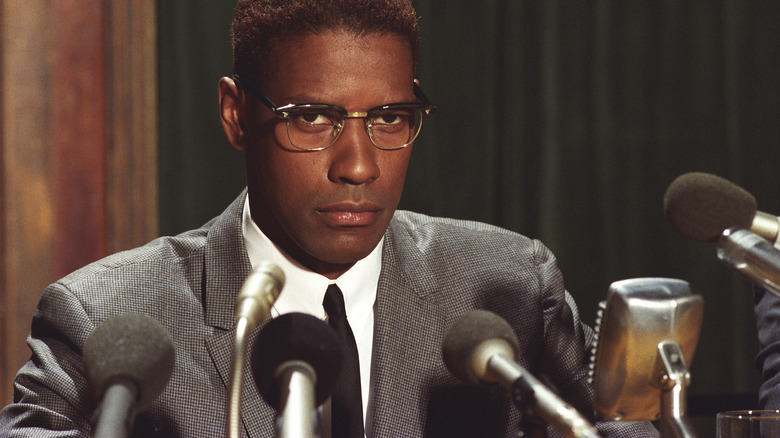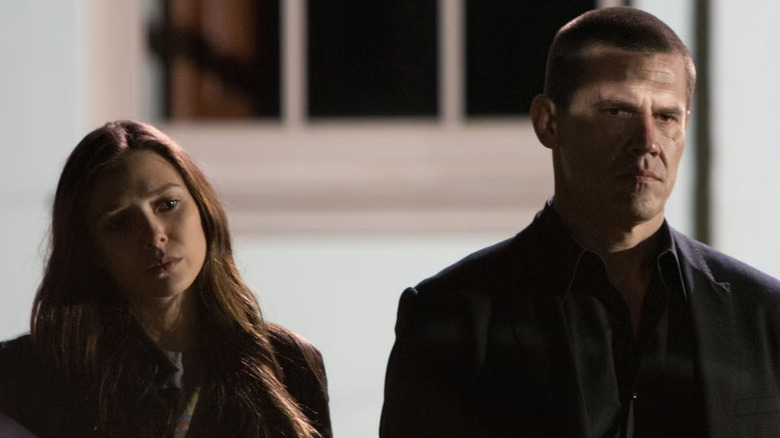What Is A Spike Lee Joint? The Credit Explained
For most films, the title card will say the director's name and then "film," so, for example, "A Steven Spielberg Film" or "A Film By Quentin Tarantino." However, Spike Lee is one of those directors who is always pushing the boundaries of creativity. He is known for his provocative narratives that investigate racial themes, feature deeply complex characters, boast galvanizing hip-hop soundtracks, and kinetic visuals — like his signature double dolly shot where characters appear to float through scenes. The Atlantic describes his films as "unabashedly bold and combative." The majority of Spike Lee's films have the credit, "A Spike Lee Joint."
Why would Spike Lee call his movies a "joint" instead of a film? Let's look at the several meanings of the word. One of the first definitions is a place of entertainment where people gather. This is fitting for Spike Lee's narratives about New York City life, where neighbors come together at casual, homegrown spots like Sal's Pizzeria in "Do the Right Thing." Joint could also mean a marijuana cigarette, which many Spike Lee characters partake in, or it could be as simple as saying it's a synonym for collaboration. But none of these definitions truly fit the director's main reason for this unique credit. There's another meaning of joint that Spike Lee is drawn to, one that is a more abstract way of thinking about how he makes his films.
Here's why Spike Lee calls his movies a 'joint'
In a 2015 interview with The Atlantic, Spike Lee was asked what sets "A Spike Lee Joint" apart. He replied:
"I think it's just really all the ingredients that I put into my film. Whatever film it is, whatever subject matter is. Whether it's a documentary or a narrative film. The connective tissue is that it's coming through me, but all the stories I feel are different. They're connected but they're different. Fingers on a hand. Toes on a foot."
Joint is also the word for a place where two things are joined. Spike Lee sees himself as that connection — the link between his fervor for racial justice or the grit of urban living, and the electrically-charged way he wields his camera.
The only film without the unconventional title card is Spike Lee's remake of "Oldboy," which felt like an odd project for him because Park Chan-wook's original is perfect (and, according to /Film, his best). One of the main reasons that Spike Lee's "Oldboy" was a disappointment is that the studio FilmDistrict made major cuts to the film, whittling it down from 140 minutes to just 105. Lee was so hurt that his vision was tarnished that he credited "Oldboy" as "A Spike Lee Film" instead, thereby distancing himself and declaring that this film was not his own.
Spike Lee's closing credits are just as distinctive, often ending with the phrases "By Any Means Necessary," "Ya Dig," or "Sho Nuff," but "A Spike Lee Joint" lets audiences know they're in for an incinerating piece of cinema that demands their full attention and refuses to fit in with everyone else.

